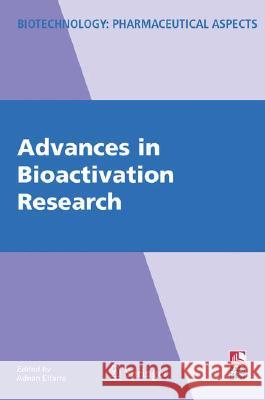Advances in Bioactivation Research » książka
Advances in Bioactivation Research
ISBN-13: 9780387772998 / Angielski / Twarda / 2008 / 503 str.
I have always been interested in chemistry and biology. My undergraduate, graduate, and postdoctoral trainings in pharmacy, medicinal chemistry and pharmacology, respectively, have strengthened this interest and led me to realize that significant advances in medicine have frequently been realized because of research at the chem- try biology interface. I am hoping that this comprehensive volume on recent advances in bioactivation research will stimulate pharmacologists, medicinal chemists, phar- ceutical scientists, and graduate students in these fields and related areas to consider and use bioactivation research when they explore and chart new frontiers in drug design and drug development and when they consider ways to reduce the side effects of existing drugs by making prodrugs. As for the toxicologists and environmental health scientists, I hope this volume will help them generate the knowledge needed to understand better mechanisms of toxicity to improve human risk assessments and intervention methods after occupational or environmental exposure to various hazardous chemicals. Adnan A. Elfarra, Ph. D. vii Part I General Concepts and Basic Mechanisms 1 Metabolic Concerns in Drug Design Jeffrey P. Jones Department of Chemistry, Washington State University, Pullman, WA 99164, USA e-mail: jpj@wsu. edu Keywords: Cytochrome P450 Aldehyde Oxidase Drug Drug Interactions Mechanism-based Virtual Screening ADMET Regioselectivity 1. 1. Introduction Due to recent technological innovations, such as genomics, combinatorial chemistry, and high-throughput screening, the identification of disease targets and of compounds that are active against these targets ( leads ) can now be carried out efficiently."











